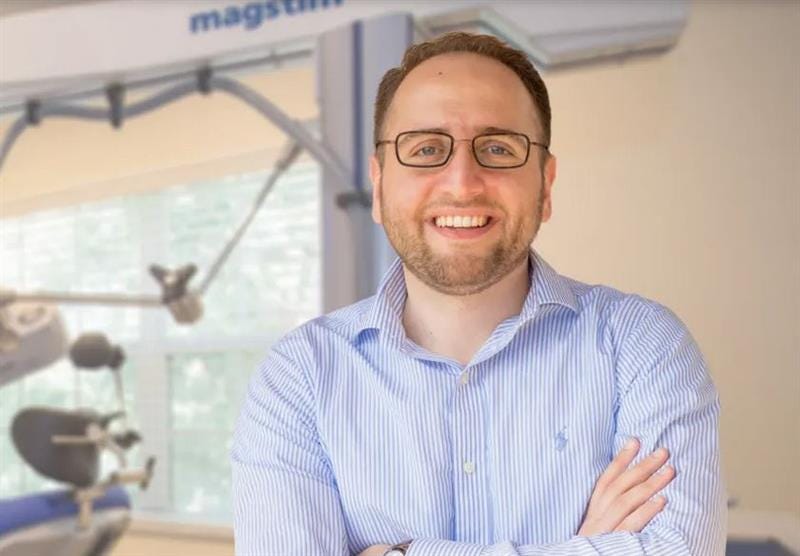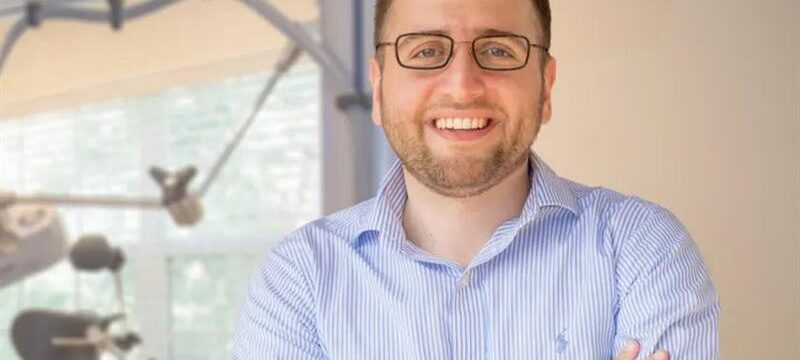Mental Health Champions: Why & How Khaled Bowarshi of Florida TMS Clinic Is Helping To Champion Mental Wellness

One, we don’t have a physical test to quantify mental illness. No lab work up or imaging to qualify or quantify depression (coming soon). This puts depression sufferers in a unique position of isolation. It makes it harder for others to relate. Say you have a broken arm, and you get an X-Ray showing a broken bone. You understand you have to do something about it. The doctor puts a cast on it. S/He tells you to take a break, then do physical therapy. You don’t question what the doctor said. Your boss doesn’t question your inability to use your arm. Your spouse understands why you are not playing with the kids as much. Everyone gets it. Well, what if you had depression? Who can see it? How could we measure it? How do you treat it? How could others understand it?.. Etc.
As a part of our series about Mental Health Champions helping to promote mental wellness, I had the pleasure to interview Dr. Bowarshi.
Dr. Khaled Bowarshi graduated from medical school in 2010 and conducted his residency training at WVU-Charleston. In 2019, Dr. Bowarshi received his fellowship in TMS training from Duke University. Shortly after, he founded Florida TMS Clinic, to bring the most advanced TMS technology to the Tampa Bay area. Dr. Bowarshi is double board-certified in both Internal Medicine and Psychiatry and is a member of the American Psychiatric Association the Clinical TMS Society.
Thank you so much for doing this with us! Before we dig in, our readers would like to get to know you a bit. Can you tell us a bit about how you grew up?
I was born and raised in Damascus, Syria, the oldest continuously inhabited city in the world. I come from a simple family of 2 parents and 4 children. We all ended up in the medical field, and 3 out of the 4 became doctors. While in medical school, I was determined to seek the highest level of education possible in psychiatry. My obvious destination was the United States. I did my last year of medical school rotations in various medical schools and prestigious institutions like the NIH. My mentor at the NIH was double-boarded in both Internal Medicine and Psychiatry. It was very intriguing for me to get such extensive training in both specialties to serve my patients better. I ended up doing combined training in Medicine and Psychiatry, which made me a better psychiatrist overall.
You are currently leading a social impact organization that is helping to promote mental wellness. Can you tell us a bit about what you or your organization are trying to address?
In late 2019, we established Florida TMS Clinic in the Tampa Bay Area, Florida, as the leader in depression treatment. Depression is a disabling illness that is very difficult to treat. A third of depression sufferers will have no improvement from classical depression treatment like talk therapy and antidepressants. Florida TMS Clinic provides the most advanced level of medical technology to treat depression using gentle magnetic pulses that can stimulate the brain back into normal activity. Our primary mission is to make such innovative treatment options accessible and attainable to anyone who needs it.
Can you tell us the backstory about what inspired you to originally feel passionate about this cause?
Before founding Florida TMS Clinic, I used to work for a hospital as an inpatient psychiatrist. I had many patients with Treatment Resistant Depression who stayed in the hospital longer than they were out of it. I was very limited in my treatment options to help these folks, as classical medications didn’t help any further. I noticed that I was internalizing my patients’ hopelessness and started to feel the same way. That’s when I got inspired to do something different and utilize more effective treatment options for depression, including Transcranial Magnetic Stimulation and Esketamine.
Many of us have ideas, dreams, and passions, but never manifest them. They don’t get up and just do it. But you did. Was there an “Aha Moment” that made you decide that you were actually going to step up and do it? What was that final trigger?
My “Aha Moment” was in 2019. Particularly when a hospital administrator called me for a meeting asking me to keep insured patients in the hospital longer than they need to increase revenue. The person said, “Dr. Bowarshi, by discharging your patients so soon, you are leaving money on the table.” At that moment, I recognized that the healthcare industry was corrupt. I decided to practice independently outside of any “tables” to serve patients only, not to put money in the pockets of wall street investors.
Can you share the most interesting story that happened to you since you began leading your company or organization?
The most exciting thing while leading Florida TMS Clinic is that I became a mentor to many other doctors trying to do the same thing. I had nearly 20 psychiatrists traveling from around the United States to learn our model. That inspired me to run and win the Clinical TMS Society board of directors election. I now dedicated even more time teaching other doctors TMS.
None of us can be successful without some help along the way. Did you have mentors or cheerleaders who helped you to succeed? Can you tell us a story about their influence?
My wife was in her third trimester when I planned to start my Florida TMS Clinic journey. I hesitated because I wanted stability, but I did it for my son. I wanted him and Florida TMS Clinic to grow together. Hopefully, he will carry the mission for generations. Somehow I see him now as my inspiration to grow this project.
According to Mental Health America’s report, over 44 million Americans have a mental health condition. Yet there’s still a stigma about mental illness. Can you share a few reasons you think this is so?
There are a few reasons. Here are some that come to my mind.
One, we don’t have a physical test to quantify mental illness. No lab work up or imaging to qualify or quantify depression (coming soon). This puts depression sufferers in a unique position of isolation. It makes it harder for others to relate. Say you have a broken arm, and you get an X-Ray showing a broken bone. You understand you have to do something about it. The doctor puts a cast on it. S/He tells you to take a break, then do physical therapy. You don’t question what the doctor said. Your boss doesn’t question your inability to use your arm. Your spouse understands why you are not playing with the kids as much. Everyone gets it. Well, what if you had depression? Who can see it? How could we measure it? How do you treat it? How could others understand it?.. Etc.
Second, depression and other mental health illnesses could cause guilt or feeling of shame as part of the illness itself. This could be projected to society as a stigma when it is a symptom of the disorder itself. I like to say that social stigma related to mental health indicates that we are depressed as a society because of this pathological shame.
Third, insurance companies. Insurances are in the business of not paying for services when they don’t have to. Because of the above #1 and #2, more often than you think, insurances get away with not covering mental health services at the same level they cover physical health services. In many cases, less money spent means less quality of care. This adds to the stigma when mental health services are associated with low resources making it a “broke” field of medicine.
In your experience, what should a) individuals b) society, and c) the government do to better support people suffering from mental illness?
Individuals: Should seek help as soon as they need it. Help loved ones find help as quickly as possible.
Society: Raise mental health awareness. Just talk about it. Normalize the conversation.
Government: Spend money on mental health to save money down the road.
We always complain about the “shortage” in mental health care and providers. I am sure the shortage will vanish if CMS (Medicare) announces tomorrow that for the next 10 years, they will pay all billing codes for mental health services at 200% of the current rate for physical health services. Many physicians will pick psychiatry as their specialty. More intelligent, highly educated professionals will choose mental health as a career instead of the software engineer career everyone dreams about nowadays.
What are your 5 strategies you use to promote your own wellbeing and mental wellness? Can you please give a story or example for each?
- I do what I love, so It doesn’t feel like work.
- I spend time with family and friends, so I always feel connected.
- I work out regularly in a way that doesn’t feel like a chore.
- I watch what I put in my body.
- Keep in touch with your spirituality.
What are your favorite books, podcasts, or resources that inspire you to be a mental health champion?
My favorite book in social psychology is The Coddling of the American Mind: How Good Intentions and Bad Ideas Are Setting Up a Generation for Failure by Jonathan Haidt
My favorite podcast is The Huberman Lab Podcast
My favorite resource of inspiration is my patients. Seeing them getting better and taking control over their lives.
If you could tell other people one thing about why they should consider making a positive impact on our environment or society, like you, what would you tell them?
It is OK to fail. Once you accept failure, it won’t be scary anymore and will make your journey towards success so much easier.
How can our readers follow you online?
Florida TMS Clinic has an active website https://www.floridatmsclinic.com/
We also have an active YouTube channel to build a community around mental health awareness. I make video answers to questions. No question left behind. So go there and ask away!
This was very meaningful, thank you so much. We wish you only continued success on your great work!
Mental Health Champions: Why & How Khaled Bowarshi of Florida TMS Clinic Is Helping To Champion… was originally published in Authority Magazine on Medium, where people are continuing the conversation by highlighting and responding to this story.
